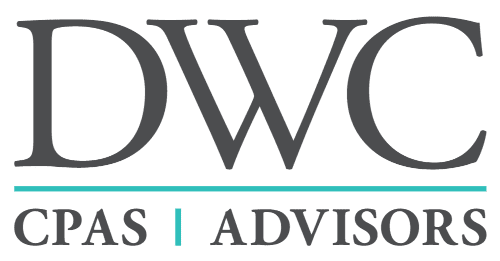COVID‐19 has undoubtedly wreaked havoc on our lives. It is easy to get wrapped up in the day‐to‐day stress that the virus has created, but you will thank yourself in the future if you take a step back and utilize planning opportunities available to maximize your future cash flows and investment returns. Here are some ways to benefit from the economic environment and recent tax legislation that has resulted from COVID‐19:
- Consider converting your traditional IRA to a ROTH IRA. Because of the pandemic, your income may be lower in 2020, resulting in a lower tax rate. ROTH conversions require the amount converted to be recognized as taxable income in the year of the conversion. Doing this conversion in 2020 would allow you to take advantage of your lower income tax rate. The Tax Cuts and Jobs Act of 2017 (TCJA) lowered the tax rates, but future legislation could be passed to increase rates to help recover from the economic impact of COVID‐19. Why convert your traditional IRA to a ROTH? Doing so is advantageous because future tax rates will likely be higher than they are now. Taxing the balance of your IRA now will lead to savings in the future, because ROTH distributions are tax‐free as long as the account has been open for five years and you are 59 ½ or older. Additionally, unlike traditional IRAs, ROTHs are not subject to required minimum distributions. The money in a ROTH can grow untouched for as long as needed.
- The Coronavirus Aid, Relief, and Economic Security Act (CARES Act) allows distributions up to $100,000 from retirement plans for qualifying coronavirus purposes (i.e. experiencing adverse financial consequences because of being quarantined, being furloughed, laid off, or having work hours reduced as a result of the virus). This amount is not subject to the 10% early withdrawal penalty and is allowed a three‐year spread, which means you could report a third of the distribution on your federal tax return for the next three years. You can also repay the distribution within three years; in which case the distribution will be treated as though it were repaid in a direct trustee‐to‐trustee transfer and you would not owe federal income tax on the distribution.
- Keep the new net operating loss (NOL) rules in mind if you find you or your business at a tax loss in 2020. The CARES Act removed the 80% limit on NOL utilization that the TCJA had previously imposed for tax years beginning before 2021. Additionally, any NOLs generated in tax years beginning after 12/31/2017 and before 1/1/2021 are allowed a five‐year carryback period. It will likely be beneficial to carryback any NOLs that occur during this time because tax rates were higher five years ago than they are now and your income may have been higher five years ago than it will be in the future years.
- Don’t let your investment portfolio’s performance surprise you when tax time comes. Make sure to review your situation before year‐end to minimize any capital gains tax you might owe as a result of buying low during the worst of the pandemic and selling high as the market recovered. If you have capital gains, consider selling nonperforming stocks at a loss to prevent having to pay taxes on the net capital gains. If you have capital losses, see if you have any stock you can sell at a gain. This is a smart move because capital losses are fully deductible to the extent of your capital gains, however, capital losses in excess of capital gains can offset only $3,000 of ordinary income. The remaining capital losses carryforward indefinitely.
- Members of our community need assistance more than ever during this difficult time. If you are considering making charitable contributions to a qualified charitable organization, your tax liability will benefit more than ever. Taxpayers who do not itemize will receive up to a $300 above-the-line deduction for charitable contributions made in 2020. Additionally, if you do itemize, the normal 60% of AGI limitation on charitable contributions has been increased to 100% of AGI.
These are just a few of the many planning opportunities available to ensure we come out of this pandemic as financially sound as possible. Talk with your Dalby Wendland advisor to ensure you know all the options available and planning tailored to your needs.
Paige Curtiss is a CPA with Dalby Wendland’s Grand Junction tax team. She hails from Wyoming and attained a master’s degree in accounting from the University of Wyoming in Laramie. As a senior accountant, she assists individuals and businesses with income tax preparation. She is a member of the American Institute of CPAs, Colorado Society of CPAs, and supports businesses and the community as a Grand Junction Chamber Diplomat.



